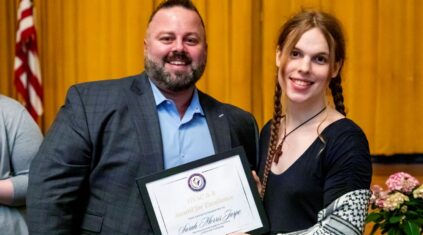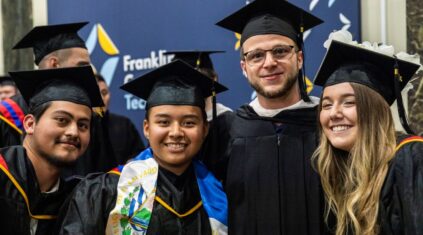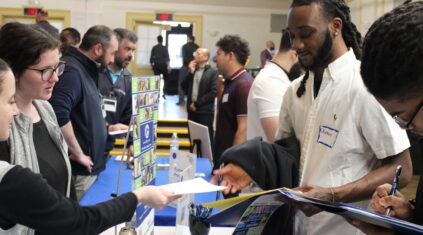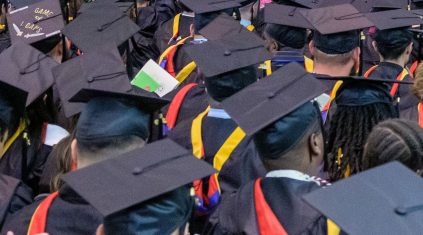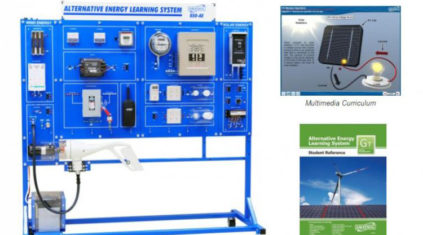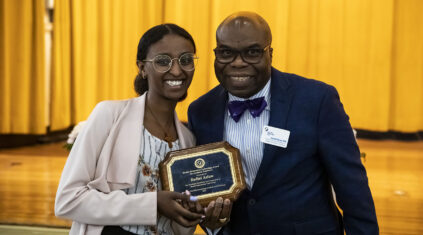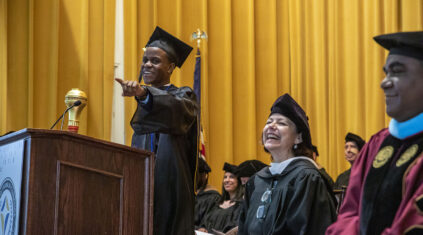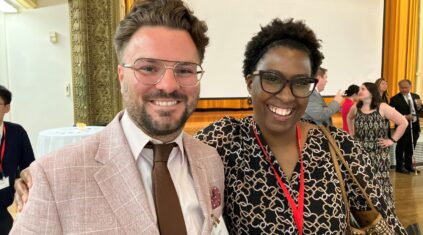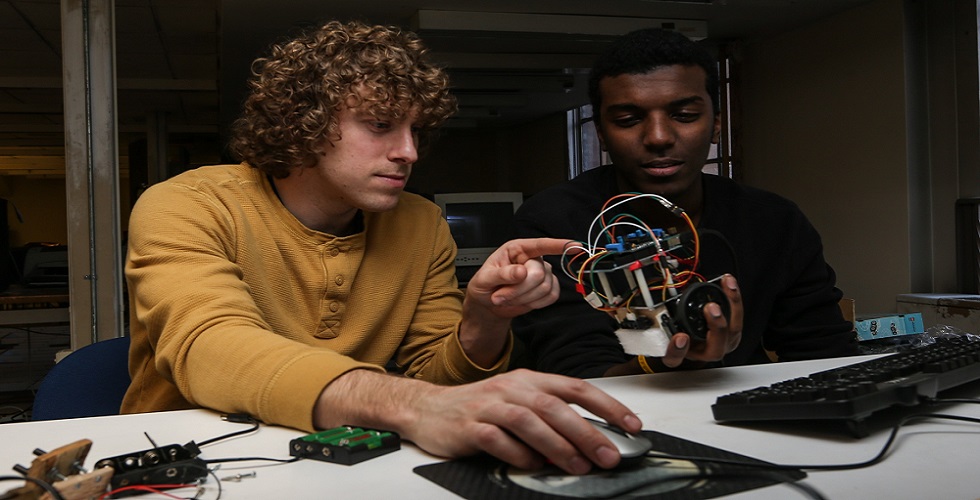
$1.5M NSF Grant to Support Electrical Engineering Students
October 13, 2021
Benjamin Franklin Cummings Institute of Technology announced today the reception of a $1.5 million grant from the National Science Foundation (NSF) to support the launch of the “STEM Scholars” project, which will assist students enrolled in the college’s ABET-accredited Electrical Engineering bachelor’s degree program.
Funds aim to diversify workforce through boosting retention, graduation rates for high-achieving, low-income BPS students pursuing engineering degrees
Using a combination of tuition scholarships, special programming, and academic supports, the STEM Scholars project aims to contribute to the national need for well-educated engineers and technicians by boosting retention and graduation rates for high-achieving, low-income Boston Public School graduates entering the college’s Electrical Engineering (EE) program over the next six years. Funds from the NSF grant will support 34 unique, full-time students who are pursuing a bachelor’s degree with tuition payments, purchase of coursework books, and other fees related to academic expenses.
“The funds provided by this grant from the National Science Foundation will provide critical support in increasing the diversity and number of students entering the rapidly expanding field of electrical engineering, particularly in electric power, an industry that is experiencing a severe labor shortage,” said President and CEO Dr. Aisha Francis. “As a technical college serving a majority of Black and brown students, many of whom are first-generation college students, this financial support allows us to expand our mission of providing a pipeline of diverse, skilled, and career-ready graduates with a deep knowledge of the technical and engineering trades.”
The STEM Scholars project is designed to create a “community of scholars,” where EE students take classes together, learn together in study groups, participate in special programming, and benefit from the college’s extensive student support services. Details of the special programs include:
- An overnight research trip focused on sustainable energy in Maine;
- A hands-on seminar on electric power;
- Mentoring opportunities with Greater Boston middle and high school students; and
- Exposure to the Institute of Electrical and Electronics Engineers Power and Energy Society events and other professional activities.
“This project has the potential to make a difference not only to the scholars who will receive tuition awards and programs at Benjamin Franklin Institute, but also to the hundreds of BPS middle and high school students that the scholars will interact with,” said Dr. Lisa Shatz, Director of the Electrical Engineering bachelor’s degree program. “Its success in boosting retention and graduation rates will serve as a model to middle schools, high schools, community colleges, and universities wanting to encourage students – particularly students of color – to pursue an engineering career, inspiring the next generation of technicians and engineers and creating a more diverse and qualified workforce.”
Since its launch in 2017, the Electrical Engineering program has experienced a 58% four-year graduation rate and a 100% job placement rate for graduates. Compared to national average of 35% four-year graduation rates, this increased graduation rate proves that high levels of support provided by faculty and staff can improve student success. Learn more about our ABET-accredited Electrical Engineering bachelor’s degree program.
At the conclusion of the grant period, the findings of the project will be disseminated both within the college and to the broader public through workshops, seminars, conferences, and publications. The comprehensive evaluation of the project will look at whether specific activities aimed at providing academic, financial, and social support increased students’ self-efficacy, program involvement, and motivation to complete a degree in electrical engineering.
This project is funded by NSF’s Scholarships in Science, Technology, Engineering, and Mathematics program, which seeks to increase the number of low-income, academically talented students with demonstrated financial need who earn degrees in STEM fields. It also aims to improve the education of future STEM workers, and to generate knowledge about academic success, retention, transfer, graduation, and academic/career pathways of low-income students. Learn more about S-STEM.
This grant is part of a larger strategic initiative to build on the college’s engineering and other STEM programs in new and exciting ways at the college’s new purpose-built campus in Roxbury’s Nubian Square. The new 65,000-square-foot campus will feature state-of-the-art labs and facilities will offer expanded educational opportunities designed to meet the increasingly complex needs of in-demand technical jobs of the future.
